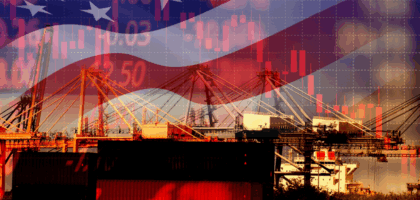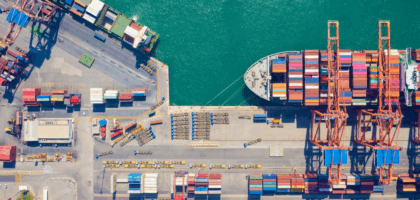On February 24, Russia provokingly attacked Ukraine and its people. It was known this was going to affect various industries across the world with a particularly high impact on the global logistics and transportation sector.
What has this ongoing crisis affected so far, and what are logistics professionals warning the impact will be on businesses?
What has the Ukraine crisis impacted so far in the logistics industry?
One of the most apparent impacts has been the rising fuel rates we have all seen (and experienced). The consequences of Russia’s actions have further destabilized the oil market and pushed up the price of crude oil in addition to the sanctions that have been imposed by the U.S. As one of the major oil-producing nations, we can expect the cost of one barrel of crude oil to rise drastically. JP Morgan estimated this could be $150 or more per barrel, as it currently sits at $125 today. These rising fuel rates will further impact the logistics and transportation industry, where companies will be forced to pass on the additional costs to their customers.
The overall logistics and transportation modes have been vastly affected as well. Road and rail freight is primarily being used to transport humanitarian relief supplies over the Ukrainian border. Road transportation in the region will become even more difficult as border controls tighten.
Like roads, increased border controls and closed ports are greatly affecting ocean routes, especially in Ukrainian and Russian waters. Currently, Russian ships are lining up in the Black Sea to prevent commercial ships from passing through and could be a premonition of a potential attack on Odesa.
Now defined as an Active Conflict Zone, the entire airspace in Ukraine and Russia is closed, affecting specific air destinations. Routes over Russia between Asia and Europe are optimal for many airlines in terms of the shortest flying time and fuel consumption. Companies shipping via air freight to the region will be greatly impacted, as costs will be higher to do so between the extended flight times and fuel usage.
What are logistics professionals saying about the impact on businesses?
With already-battered global supply chains, the ripple effects of what is occurring overseas will be felt here in the coming weeks. Currently, we have already been facing this with the rising fuel prices. But experts say this is not where it will end. Broad and very strong upward pressure on transportation prices will be seen—and experienced—across the U.S. supply chain. Not only will shippers and carriers pay more in the near future, delays and disruptions across Europe will also become reality and create longer term effects.
Since the sanctions began at the end of February, there has been a 35% decline in vessel traffic to and from Russian ports. Between these sanctions, restricted airspace and closed ports, and hazardous conditions throughout the region, shippers and carriers are being forced to find alternative routes, leading to backups and further delays—especially on routes from Asia to Europe. In addition, there will likely be a build-up of boxes if carriers refuse to make port calls due to the security and sanctions. Container availability will likely worsen. With Central and Northern Europe already experiencing high congestion, this situation will only worsen the state of container pileups.
Our thoughts are with the people of Ukraine during this time. We have our team currently monitoring this ongoing crisis and will be sure to provide any updates as we receive them.
Resources:
- Impact of Ukraine’s Invasion on International Shipping and Logistics (Globalia Logistics Network)
- Logistics Pros Warn of Business Impact from Russia-Ukraine War (DC Velocity)
- Regarding Ukraine: Impact on Customs, Logistics, and Supply Chain (Customs Support)
- Ukraine Crisis Creates Logistics Headaches for Air Cargo, Airlines (FreightWaves)



